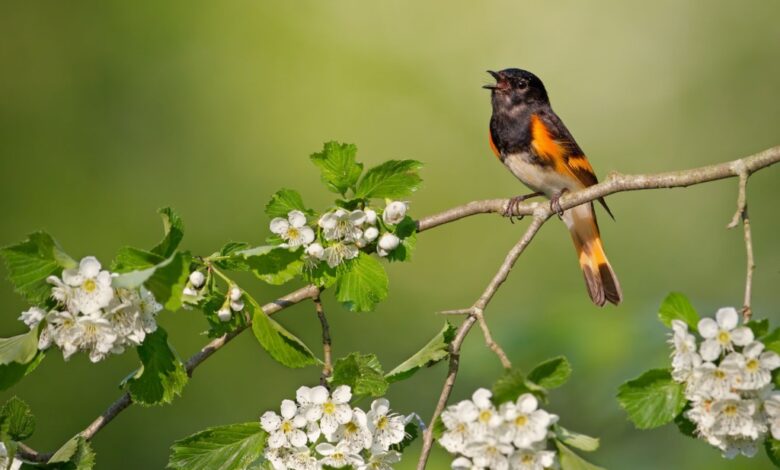Nature’s Secret Unlocked: Scientists Explain: Why Do Birds Sing At Dawn?

Decades-Old Mystery Of The Dawn Chorus Solved: Visual Field May Be A More Influential Factor Than Energy Savings Or Acoustic Conditions
CAMBRIDGE / BERLIN – A scientific mystery that has long fascinated ornithologists and biologists—the phenomenon of the birds’ dawn chorus—may finally be nearing a resolution. A new, comprehensive study challenges traditional theories regarding Why Do Birds Sing At Dawn, suggesting that the primary driver of this behavior may be related to Light Level and Field of Vision. These findings have initiated a fresh debate in the fields of behavioral biology (ethology) and ecology.
🔭 OLD THEORIES AND DISPROVEN BELIEFS
For decades, behavioral biologists primarily explained the birds’ preference for these early hours with two main hypotheses:
- Acoustic Perfection Theory: Just before sunrise, air temperature and wind speed are low, and the atmosphere is generally calmer. Therefore, it was assumed that sound waves encounter fewer obstacles and travel further and clearer, maximizing the efficiency of territorial declarations or mate attraction calls.
- Energy and Hunger Theory: Birds reduce their metabolic rate (torpor) during the night. Consequently, they would spend the energy accumulated while resting on singing, a relatively low-cost activity, until there was sufficient light to safely forage or hunt.
The new research, analyzing globally collected data, suggests that acoustic conditions or energy savings are not the sole or dominant explanations.

💡 THE NEW THEORY: TIMING OF SAFETY AND VISIBILITY
Scientists revealed that the timing of the singing is related to an optimal balance between the bird’s ability to clearly see its surroundings and its need for safety.
- Optimal Light Window: The twilight period at dawn offers the safest window: there is not yet enough light to begin foraging, but there is enough illumination for the bird to display itself and initiate calls to attract a mate or warn rivals. This safe window is when predators (owls, cats, predatory mammals) are least active.
- Communication Priority: Another key factor in Why Do Birds Sing At Dawn is the fact that other vital life activities, such as feeding or nesting, have not yet commenced at that specific hour of the day. As a result, the critical message—whether a mating call or territorial warning—is transmitted effectively without being lost in background noise (including noise from other birds’ activities).
🏙️ DISTURBING THE RHYTHM IN URBAN AREAS
These findings open new avenues for ecological research. Scientists in urban ecology are now studying how artificial lighting and chronic noise pollution in large cities disrupt the birds’ natural singing rhythm.
- Artificial Light Effect: Researchers have observed that birds living in urban areas often start singing earlier due to artificial lighting. This observation strongly supports the theory that light level (field of vision) is the primary trigger, overriding the bird’s internal circadian rhythm.
- Conservation Need: Thus, scientists aim to understand how the disruption of this natural rhythm impacts the birds’ reproductive success and overall survival.
The enigma of Why Do Birds Sing At Dawn is now explained not as a simple matter of sound, but as a complex interplay of safety, communication, and environmental factors.






